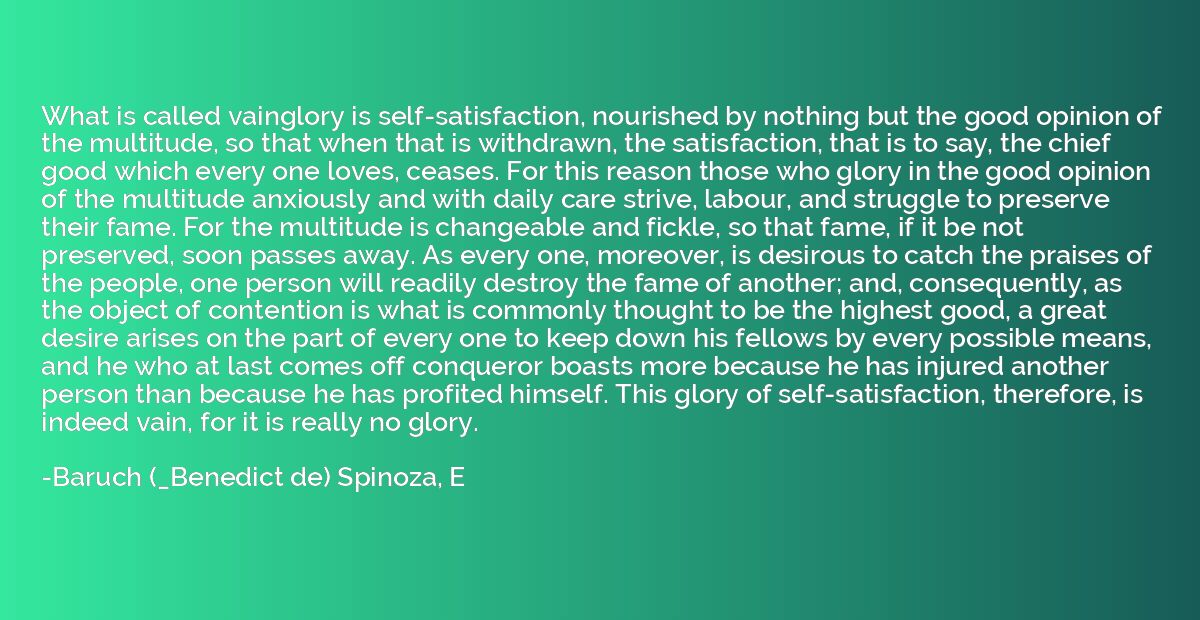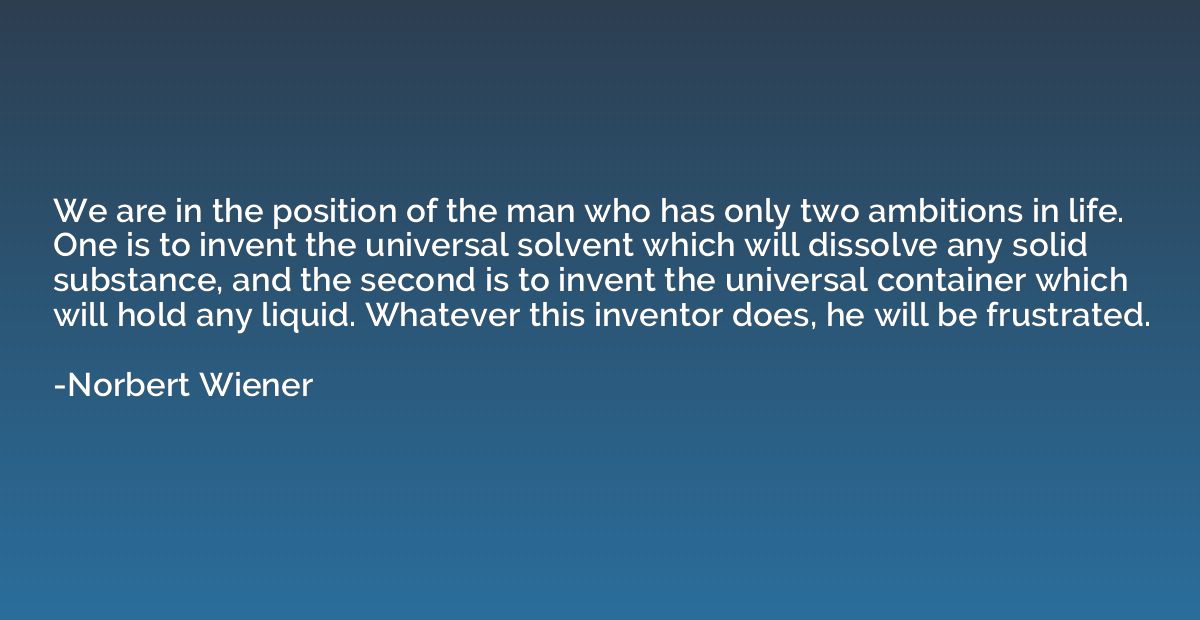Quote by Baruch (_Benedict de) Spinoza, E
What is called vainglory is self-satisfaction, nourished by nothing but the good opinion of the multitude, so that when that is withdrawn, the satisfaction, that is to say, the chief good which every one loves, ceases. For this reason those who glory in the good opinion of the multitude anxiously and with daily care strive, labour, and struggle to preserve their fame. For the multitude is changeable and fickle, so that fame, if it be not preserved, soon passes away. As every one, moreover, is desirous to catch the praises of the people, one person will readily destroy the fame of another; and, consequently, as the object of contention is what is commonly thought to be the highest good, a great desire arises on the part of every one to keep down his fellows by every possible means, and he who at last comes off conqueror boasts more because he has injured another person than because he has profited himself. This glory of self-satisfaction, therefore, is indeed vain, for it is really no glory.

Summary
In this quote, "vainglory" is defined as a sense of self-satisfaction that solely relies on the approval and admiration of others. It highlights the fragility of this satisfaction, as it depends on the opinion of the unpredictable and ever-changing multitude. People who seek vainglory constantly strive to maintain their reputation, knowing that without the public's endorsement, their chief source of gratification will disappear. The pursuit of fame often leads to fierce competition, where individuals are inclined to diminish others in order to elevate themselves. Ultimately, this self-satisfaction through vainglory is deemed empty and illusory, as it lacks genuine substance and true worth.














